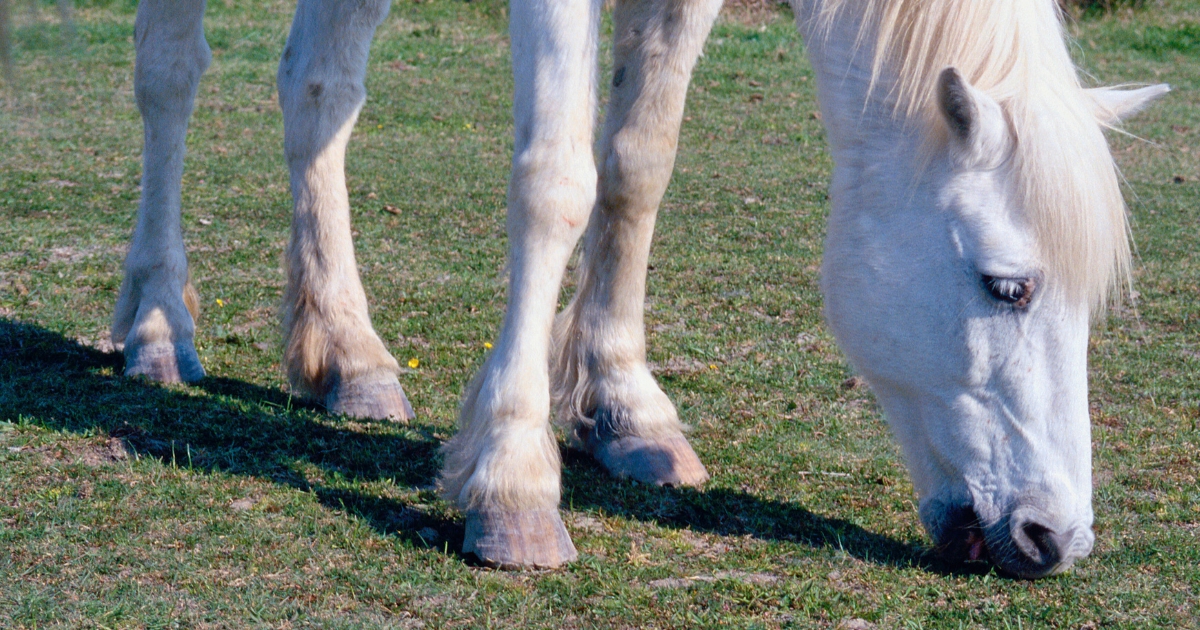Sand colic in horses
February 7, 2024

Horse lovers know that colic is one of the biggest threats to the health of their horses and ponies. It comes in different forms, but especially in the fall and winter the danger of sand colic lurks around the corner. In this article, we offer insight into recognizing symptoms, acting on suspicions and preventive maactions you can take yourself.
Colic suspicions? Call the vet
When colic is suspected, quick action is crucial. Contacting a veterinarian immediately is of utmost importance. Colic is often an acute problem and comes in various forms. Alonly a professional can make the correct diagnosis and take appropriate action.
Different types of colic
There are different types of colic:
- Colic: the intestines contract resulting in painful spasms.
- Gas colic: Normally, gas is discharged through the intestinal tract in the form of farts. When this fails, gas builds up in the gastrointestinal tract
- Sand colic: when a horse or pony eats too much sand, it accumulates in the intestinal system, which can cause sand colic.
- Congestive colic: constipation colic occurs when your horse's intestines are clogged. This often happens when a lot of straw is eaten or not enough is drunk.
- Torsion colic: this is a life-threatening condition in which the intestines twist, obstructing the blood supply.
Although these forms each have their own symptoms, in this article we will focus specifically on sand colic, a common problem especially lurking in the fall and winter.
Symptoms of sand colic
Colic is difficult to diagnose. Not all symptoms are equally obvious. Therefore, when in doubt, always consult a veterinarian. These are common symptoms of sand colic:
- Reduced appetite
- Frequent rolling
- Heavy breathing and increased heart rate
- Regular flank watching or belly kicking
- Fever and sweating
Do you think your horse or pony has colic? If so, don't wait, call your veterinarian immediately and describe in detail the symptoms you observe.
What you can do to prevent sand colic in horses
As you've read before, colic comes in different forms AND has different causes. That makes it difficult to predict. Still, we have some tips for you:
- Be sure to offer the roughage on a hard surface or from a feeder so that your horse cannot absorb sand while eating.
- Regular manure checking is a good practice to respond quickly to possible cases of sand colic. With sand colic, the manure may be sandy and watery. Changes in the frequency of manure production and the presence of small amounts of sand in the manure are also indicators.
- Subli Psyllium Slobber is a supplement for horses and ponies containing 23% psyllium seed, which stimulates sand removal in the intestines. In fact, when psyllium seed gets wet, it forms a gel that can take sand with it. Always feed Subli Psyllium Slobber diluted with water. You can always feed this supplement preventively for a short period of time.
- Horses may eat sand out of boredom or as a result of mineral deficiencies. The Mineralen Likemmer contains a complete blend of vitamins, minerals and trace elements for horses and ponies to support health and prevent deficiencies.
- Subli Mineralenbikkels are also a good option. These are 10 mm pellets with a concentrated, balanced amount of vitamins, minerals and trace elements. This ensures that your horse gets all the vitamins, minerals and trace elements it needs on a daily basis.
Taking care of your horse optimally, we are happy to help. Ask for a custom feed advice to or contact our specialists directly at info@subli.nl or 0317-499595.
TERUG NAAR HET OVERZICHT